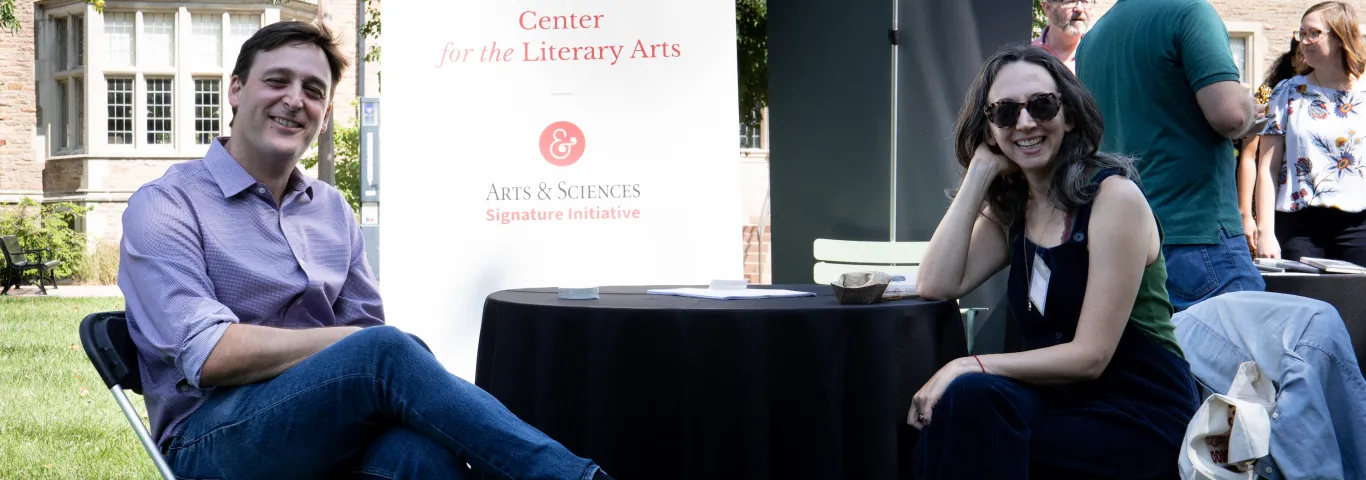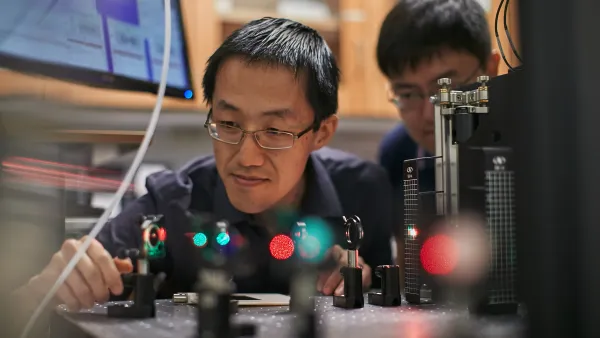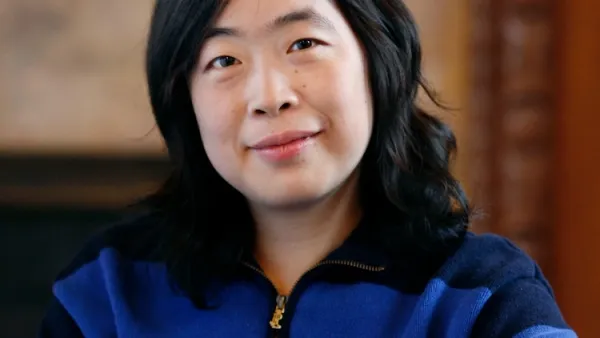On Sept. 14, members of the Arts & Sciences community gathered for lunch and conversation at the First Look Fair, an opportunity for leaders of Arts & Sciences’ signature initiatives to share their vision and progress. Several of the initiatives have made strides since launching earlier this year as part of the Arts & Sciences Strategic Plan. For example, earlier this year, the Incubator for Transdisciplinary Futures announced a call for multi-year transdisciplinary research and learning clusters pre-proposals. That call sparked collaboration ideas involving 143 faculty across all seven schools. The ITF will announce which projects will receive investment later this fall.
Pillar champions and foundation team members, a group of faculty and staff members who play key roles in Strategic Plan implementation, were also available at the fair to discuss their ongoing efforts. They work closely with Arts & Sciences leadership to ensure that future development lines up with established priorities and to identify gaps and opportunities in existing activities, climate, and infrastructure.
At the fair, attendees were invited to submit comments about how they hope to engage with the signature initiatives. Students, faculty, and staff members all participated. “The interdisciplinary focus of the Strategic Plan is really exciting,” said first-year student Leonard Ma. “I would personally love to see more classes that combine different fields of study, as well as provide more opportunity to interact with the real world.”

Arts & Sciences Signature Initiatives
The Center for the Literary Arts builds upon the rich literary heritage of Washington University, while also reimagining the possibilities for literary efficacy and creative practices in the culture today. The Center’s goals include elevating scholarship and creative opportunities for faculty, staff, and students; bringing together creative practice communities at the university and beyond; and establishing WashU as a center for the literary arts community, nationally and internationally, while supporting and re-imagining literary art-making for future generations.
Leadership: Danielle Dutton, associate professor of English; Ignacio Infante, associate professor of comparative literature and Spanish
The Center for Quantum Leaps will harness the power of rapidly emerging quantum technologies and advanced instrumentation to take a transformative step forward in research and discovery. Working with the McKelvey School of Engineering and the School of Medicine, the Center’s new collaborations and transformational technologies will advance related research programs spanning physics, chemistry, biology, and materials and medical sciences in the next decades.
Leadership: Kater Murch, professor of physics; David Piston, the Edward J. Mallinckrodt, Jr. Professor
The Incubator for Transdisciplinary Futures will nurture bold cross-campus collaborations to not only foster the future of scholarly inquiry, but also create the university of the future. Through the development and support of multiyear thematic research and learning clusters, it will identify novel areas of convergence that help reshape our research and enhance our national and global visibility. Each cluster will establish new transdisciplinary scholarship, academic and public programming, courses, and innovative student learning opportunities.
Leadership: William Acree, associate vice dean of graduate education, professor of Spanish; Betsy Sinclair, professor of political science
Literacies for Life and Career aims to provide our undergraduate students with a set of defined competencies that are indispensable for their future careers, their roles as engaged and responsible citizens, and their well-being as individuals. It will leverage existing curricula in all disciplines by asking faculty to identify and augment particular literacies that exceed their courses’ subject matter or focus.
Leadership: Brian Carpenter, professor of psychological and brain sciences; Erin McGlothlin, vice dean of undergraduate affairs, professor of German and Jewish studies
The Living Earth Collaborative 2.0 will help Arts & Sciences become a world leader in research, conservation, and education about the biological world and its interrelationship with human welfare, including environmental justice and public health issues. Collaborations will include working with institutions such as the Missouri Botanical Garden, the St. Louis Zoo, and the Endangered Wolf Center, among others.
Leadership: Jonathan Losos, the William H. Danforth Distinguished University Professor, professor of biology
The Program in Public Scholarship focuses on connecting our research and scholarship to a broader audience, developing new platforms to share our work, and increasing its impact in the public and private sectors. To that end, it will work toward translating scholarship in all forms and formats; partnering with local institutions and organizations; and developing innovative courses, internships, certificates, or degrees.
Leadership: Ian Bogost, professor of film and media studies, professor of computer science and engineering; Adia Harvey Wingfield, vice dean of faculty development and diversity, the Mary Tileston Hemenway Professor of Arts & Sciences, professor of sociology
The mission of the Transdisciplinary Institute in Applied Data Sciences (TRIADS) is to advance research that leverages the unprecedented resources of the computational age to address the most pressing social dilemmas of the 21st century. TRIADS will focus on leveraging advanced tools such as artificial intelligence, natural language processing, computer vision, and geospatial science to build transdisciplinary research programs that better understand our world.
Leadership: Jacob Montgomery, associate professor of political science; Tammy English, associate professor of psychological and brain sciences




